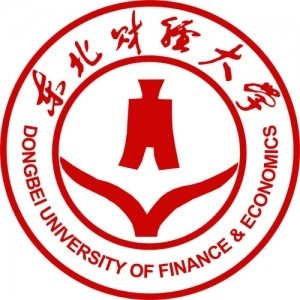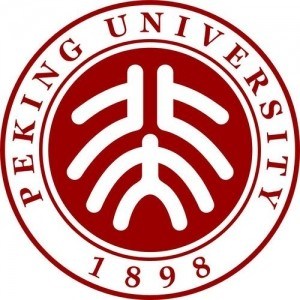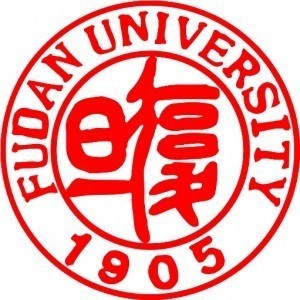Photos of university
The Scenographic Design and Communication program at Dongbei University of Finance and Economics offers students a comprehensive education in the art and science of stage design, visual storytelling, and communication strategies. This innovative curriculum combines theoretical foundations with practical applications, preparing graduates to excel in the dynamic fields of theatre, film, television, commercial productions, and multimedia arts. Students will explore the history and theory of scenography, gaining insight into the cultural and artistic contexts that influence visual storytelling. The program emphasizes the development of creative design skills, including set design, lighting, props, costumes, and multimedia integration, allowing students to craft immersive environments that enhance narrative and emotional impact. Practical training is a core component, with opportunities to work on real-world projects, participate in staging performances, and collaborate with industry professionals. The curriculum also covers communication techniques essential for presenting and explaining design concepts effectively to clients and production teams. Students will learn to utilize industry-standard software and tools used in modern scenographic work. The program aims to cultivate innovative thinking, artistic sensitivity, technical proficiency, and communication skills, ensuring graduates are versatile and competitive in the creative industries. Upon completion, students will be well-equipped to undertake roles such as set designer, production designer, scenographer, visual communication specialist, or media artist. The university provides a supportive academic environment, distinguished faculty with industry experience, and access to state-of-the-art facilities, fostering a rich learning experience that bridges theory with hands-on practice. This program is ideal for students passionate about theatre arts, visual storytelling, and media communication, seeking to develop their artistic talents and technical abilities to create compelling visual experiences across various platforms.
1.Semester
- Scenography + Communication
- Conception + Creation
- Humanities
2.Semester
- Scenography + Communication
- Conception + Creation
- Humanities
3. Semester
- Best Practise / Foundation
- Project Suport/ Monitoring Master Project
- MasterProject/Colloquium
Required degreeAdmission to the master‘s programme requires proof of having successfully com-pleted▪a (German) Diplomor a bachelor’s programme in design, architecture/inte-rior design, urban planning/land use planning or a comparable degree pro-gramme at an University of Applied Science and Arts with a curriculum in-cluding design studies focussing on the design of rooms, environment and public spaces (design subjects) or ▪proof of having successfully completed an academic (German) Diplom or a bachelor’s programme in art theory, media studies, cultural studies, the arts or economics at an institution of University of Applied Science and Arts with a curriculum including a particular field of the practical application of sceno-graphic design or the design of rooms, environment and public spaces and/or communication design or of academic analysis (academic subjects).In addition, the course of study must amount to a minimum of 210 creditpoints (ECTS). Applicants with a programmeof only 180 ECTS,can catch up the missing 30 ECTS in two ways. They can complete an internship over 20 weeks or they can complete special courses. The 30 ECTS has to be reached until the first module examination.Foreign graduate degrees must include a final thesis with comparable qualitative minimum requirements ((German) Diplom or a bachelor‘s thesis).Apptitude AssessmentThe procedure for establishing the aptitude for this particular programme of ap-plicants intending to pursue a degree in the master‘s programme Scenographic Design and Communication of the Department of Design is conducted twiceper year in a two-stage procedure.Admission to the procedure requires registration which has to be submitted tothe Dean of the Apartment of Design of the Univer-sity of Applied Sciences and Arts Dortmund by 15thof Decemberor 15thof Mayof each year along with the required documents.For the registration for the aptitude assessment stage 1, the following docu-ments have to be submitted by 15thof Decemberor 15thof Mayof each year:▪Submission of the “Aptitude assessment registration form” (on www.fh-dortmund.de/studienangebot_szenografie_maand in the annex of the degree programme info) by mail or personally to the Dean of the Depart-ment of Design, University of Applied Sciences and Arts Dortmund, Max-Ophüls-Platz 2, D-44137 Dortmund.▪Further documentsa) For applicants from designsubjects: a portfolio with a minimum of three independent work samples (presentation with comment and description in German or English) from at least one project context: of scenographicdesign (stage/theatre or museum/exhibition or trade fair/event or set design/media production or virtual spaces context); and/or object, room/environ-ment/space or architecture-related design; or temporary communication de-sign (corporate communications/campaigns or advertising/brand staging context); or temporary media design (performance/installation context, lin-ear and non-linear); or b) For applicants from academic subjects:a compendium of academic re-search or other academic results from the arts or economics proving research of scenographic subjects providing evidence of dealing with scenographic topics. Three-dimensional objects may only be submitted on presentation media (print or electronic). Electronically on CD or DVD (formats: PDF, JPG, MOV, MP4,FLV, HTML, DVD). For dynamic websites the URL has to be stated.The work samples of the portfolio or the research and results for the compendium have to be stated in a list which has to bear a written statement that the applicant has executed the work independently. Results of aptitude assessment stage 1(1) The work samples of the portfolio or the documented academic research or the academic results meeting the requirements for the programme are rated by an elected committee according to the following aspects: conceptual compe-tence, artistic and design creativity, competence in providing creative design so-lutions, and organisational and moderating skills or academic consistency. (2 ) Based on the aspects stated in section 1 the committee writes an assess-ment of the first stage of the procedure and decides on the admission to the sec-ond stage of the procedure. The applicants not admitted to the second stage of the procedure will be informed promptly of their rejection for the further proce-dure. Aptitudeassessment stage 2(colloquy, by invitation) (1) In the second stage of the procedure the committee will invite the applicant for a colloquy taking place within four weeks after admission to the second stage of the procedure to verify andexplore the impressions gained until then. In the colloquy, applicants will be expected to provide a description of a scenographic master‘s project lasting no longer than five minutes.(2) The aptitude assessment according to the aspects stated above will be awarded withan overall average grade of 4.0 or better.(3) Any material submitted will be available for collection from the Department of Design for one month after completion of the aptitude assessment procedure. Af-ter expiry of this period this material will be destroyed in compliance with data privacy regulations.
German or English skillsThe applicants for the programme have to opt for a prevailing programme lan-guage by the time they apply and prove they have the following language skills with regard to their favoured prevailing programme language: a) German as the prevailing programme language: For the degree programme with German as the prevailing programme language, proof of sufficient German skills has to be provided. For applicants who did not obtain their university en-trance qualification or their graduate degree at a German-speakinginstitution this proof is provided by the language examinations. b) English as the prevailing programme language: For the degree programme with English as the prevailing programme language, proof of sufficient English skills has to be providedby the applicants. The proof of English skills is officially identified if the applicant can provide proof of one of the following qualifications: (1) TOEFEL-iBT with a minimum of 90 points, the examination must have been taken no longer than two years before the application is received; (2) IELTS, Academic Level, with a minimum average score of 6.5 points, the ex-amination must have been taken no longer than two years before the application is received.No later than when registering for the master’s thesis, students who chose English as their prevailing programme language and have no prior German skills have to submit a language certificate (GER) of at least level B1 issued by a recognised foreign language institute (like e.g. Auslandsgesellschaft NRW orGoethe-Institut).
The financing studies of the Scenographic Design and Communication programme at Dongbei University of Finance and Economics typically encompass a range of funding options available to students to support their educational pursuits. As a university renowned for its focus on finance and economics, Dongbei University often provides comprehensive financial aid packages, including scholarships, grants, and governmental supportive funds, aimed at both domestic and international students. Scholarships may be merit-based, awarded to students demonstrating outstanding academic performance, or needs-based, assisting students with financial difficulties. Additionally, the university may collaborate with local industries and cultural institutions to offer internships and work-study opportunities that contribute to students’ financial stability during their studies.
Students are encouraged to explore various sources of funding, such as university-specific tuition waivers, external scholarships from relevant cultural and artistic organizations, and national scholarship programs that support arts and communication disciplines. The cost of attendance generally covers tuition fees, accommodation, textbooks, and personal expenses, with the university providing detailed guidance on budgeting and financial planning. International students might have access to specific scholarships aimed at promoting cultural exchange and artistic development. The university’s financial support policies are designed to ensure that talented students from diverse backgrounds can access quality education without undue financial burden.
Furthermore, Dongbei University of Finance and Economics may facilitate part-time employment opportunities within campus facilities, including administrative offices, libraries, and cultural centres, allowing students to earn additional income while gaining practical experience relevant to their studies. Loan schemes and financial advisory services are also commonly available to assist students in managing their finances effectively throughout their academic journey. Overall, the financing landscape of the Scenographic Design and Communication program is structured to promote accessibility and inclusivity, fostering an environment where students can fully immerse themselves in their artistic and academic development without excessive financial constraints.
The undergraduate program in Scenographic Design and Communication at Dongbei University of Finance and Economics is a comprehensive educational path that aims to cultivate students’ skills in visual communication, stage design, and multimedia arts. The program integrates theories and practices related to modern scenography, focusing on the creation of immersive visual environments for theater, film, television, exhibitions, and other performance settings. Students are equipped with a solid foundation in art design, visual communication principles, and technical skills necessary for designing engaging and effective scenographic works. The curriculum includes courses in stage space design, costume and makeup design, lighting design, multimedia integration, and project management, ensuring a well-rounded education. Emphasis is placed on practical training, with students participating in numerous workshops, studio projects, and collaborations with professional theater and performance companies to gain real-world experience. Communication skills are also a core component, preparing students to effectively convey creative ideas visually and verbally in diverse professional contexts. Graduates of this program can pursue careers as stage designers, set designers, visual communication specialists, multimedia artists, and production managers in the arts and entertainment industries. The program aims to develop innovative thinking, creative problem-solving abilities, and technical proficiency, enabling graduates to contribute to contemporary scenography and stage communication fields. With the support of experienced faculty members who are active professionals and researchers, students also have opportunities for international exchanges and internships, enhancing their global perspective. The program aligns with current industry trends emphasizing multimedia integration, digital design, and audience engagement, ensuring that graduates are competitive in the rapidly evolving arts landscape. Overall, the program provides a rich educational experience that combines artistic creativity, technical expertise, and effective communication, preparing students to excel in diverse scenographic and communication roles in the arts sector.


